L’Oreal Australia/NZ boss Rodrigo Pizarro on life in the fast lane
Rodrigo Pizarro is a quintessential global executive who’s worked for L’Oreal since 1993. He’s also a single dad of four with a weakness for fast motorbikes.
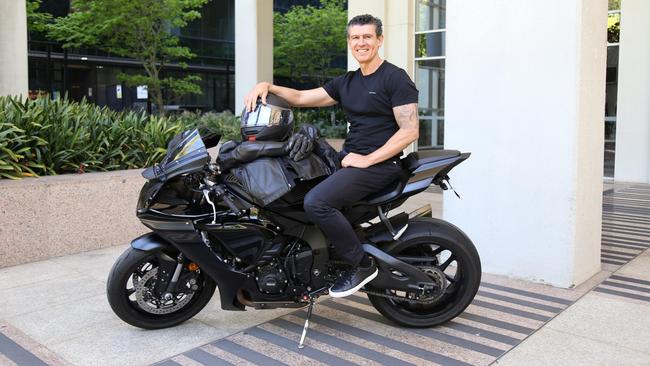
Rodrigo Pizarro is your quintessential one-company global executive.
A graduate of the Lisbon School of Economics and Management, he started his career with the French multinational beauty and cosmetics giant L’Oreal in 1993 as a product manager for hair colour in Portugal.
He’s since worked for the group in France, Hungary and Brazil and was appointed country manager of L’Oréal Australia and New Zealand in August 2014. Eight years later, he is still going strong in the role.
What is far less known about Pizarro is that he is also a single dad with four children. His two older sons are from his first marriage. He lived in a different continent to them for six years when they were growing up.
His two younger children are 12 and 10 and now define the way he approaches his working life.
“I do believe that men do mature a bit later. When I was a father for my first time in my late 20s, I was not ready. I didn’t know how to do it. Today when I look back, I think I could have done a bit better,” he says.
“What I want most of all is just to teach the new generation, if I can, my lesson that I learned in that I was too dedicated to my career. I did not balance well between my work and my personal life. It was too focused on my work.”
Pizarro’s personal experience underpin’s L’Oréal Australia’s ambition to be a leading employer when it comes to paid parental leave. Since 2017 the firm has offered all parents – male and female – 14 weeks paid leave.
L’Oreal also offers an additional 20 hours for new parents to attend medical and other appointments.
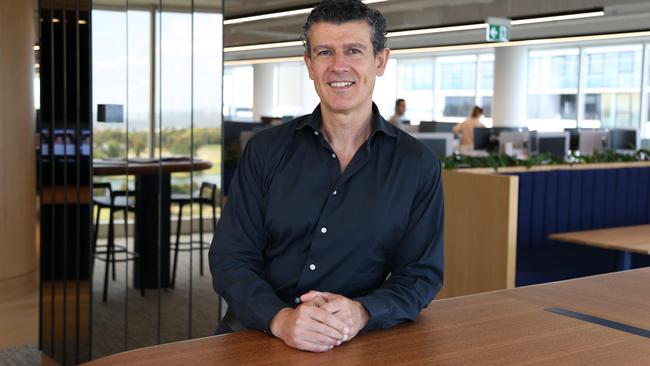
In 2018 the firm also launched what it called the Parent Support & Stay in Touch program to support working parents in planning parental leave, staying connected to the workforce and later returning.
Pizarro’s philosophy is that if he – as CEO – can be at every milestone for his kids, then his staff should have the same privilege.
“I can tell you that if I have an event of my kids – my daughter is in a choir and plays violin – if she has a concert or she has a choir performance, I’m going to be there,” he says.
“If there is a meeting at the highest level with even the principal of the region, I will ask him respectfully that I can only attend if there is a priority for me to be there. I think there is an understanding at L’Oreal in that sense. I’ve never had an issue with that. I will go out and just do it.”
No job losses
Pizarro will never forget the briefing he gave to L'Oreal's 1000 Australian staff – including the 400 in its St Kilda Road head office in Melbourne – as the Covid-19 pandemic was taking hold in May 2020.
“When all companies were shutting down, I said to everybody, ‘Nobody is going to lose their job’,” he says.
Unlike many of the largest Australian companies, L’Oreal received no JobKeeper payments.
“We were completely independent, but we could say immediately that nobody was going to lose their job. I told the staff that the company was a very solid company and we would take the impact ourselves. I think that was the first moment where people really trusted the company,” he says.
“From there on in 2020, we did not talk about business, we talked about people first and then business. We changed the world that we operated in. I think even today we are still benefiting from that.”
During the later stages of the pandemic in September 2021 L’Oreal also introduced a landmark Wellness Day off for all staff, including warehouse staff.
“It was a day to stay home, be with your families, do what you want. A day when nobody works. We could see, especially with the Melbourne extended lockdown, that people needed it,” Pizarro says.
It is now an annual event.
L’Oreal also has a mandatory screen detox at 1pm every day that originated at the height of the pandemic.
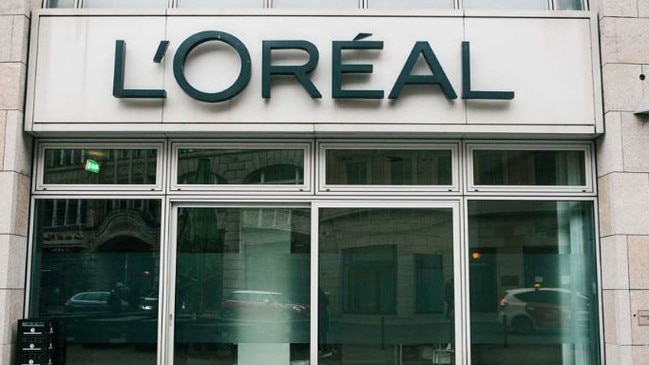
We realised that people were working back to back and longer hours. So we decided to break it. We now have a Wellness Hour every day from 1pm to 2pm when you cannot have meetings. We never stopped it after Covid,” he says.
He believes the strong culture of the Australasian group has helped it punch above its weight in L’Oréal global empire.
“For the size of population it is becoming really a very strong part of the group. I would probably say that we are in the top five per capita globally in terms of the total business that we do,” he says.
The past three years have been the most successful in the history of the local business, where it has generated higher revenue and profit each year.
In addition to the culture, the growth has been driven by a new focus on data analytics.
Every single staff member in L’Oréal local business has undertaken a data literacy program called AVA Academy (adding value through analytics), to help them understand how to make data-centric decisions.
They have also been able to study how beauty products can be experienced online in 3D, how beauty will look in the metaverse, and what this means for consumers and the future of the industry
“I’m a firm believer in intuition and creativity. But what I’ve realised over the years is that data is becoming more and more influential and more and more important. We truly need this perfect balance between creativity, intuition and data,” Pizarro says.
“We have to optimise everything we do. We need to optimise the way we go to market, we need to optimise our promotion investment, we need to optimise our media investment, we need to optimise our forecasting. Because all our products are imported. By doing that we can grow market share beyond the market. We have been beating the market by 2½ to 3 times.”
L’Oreal Australia now has eight data scientists on staff compared to none just two years ago. It now uses no external – and expensive – consultants for this work.
“Our data scientists are doing sophisticated internal AI modelling, models which are learning from the data and just providing us with the best possible outcomes,” Pizarro says.
“For example, now 84 per cent of our media investment is done by the model.”
L’Oreal Australia has also invested heavily in a highly automated Knapp picking and packing facility at its Melbourne distribution centre, which has put it ahead of the curve with its customer relationships management.
Racing fanatic
Pizarro always dreamed of riding a motorcycle, but didn’t buy his first till he was working in the Hungarian capital of Budapest in 2007. His first wife never wanted him to have one.
“It stirred a passion in me that I could never realise,” he says.
He now rides the top-selling sports motorbike known as the Yamaha R1.
But more importantly, motorbike riding has helped him bond with his second eldest son, Leonardo, who has been living with his father in Melbourne since he was 16. They ride regularly together on weekends.
“We have similar personalities. We both enjoy our freedom together,” Pizarro says.
“Riding is where I get my freedom. I don’t think about anything else. There is no stress, there is just a pure concentration because you do have to focus when you are riding a motorbike.”
He and Leonardo also regularly do racing track riding together at the famed Phillip Island course southeast of Melbourne, the venue for the Australian Moto Grand Prix.
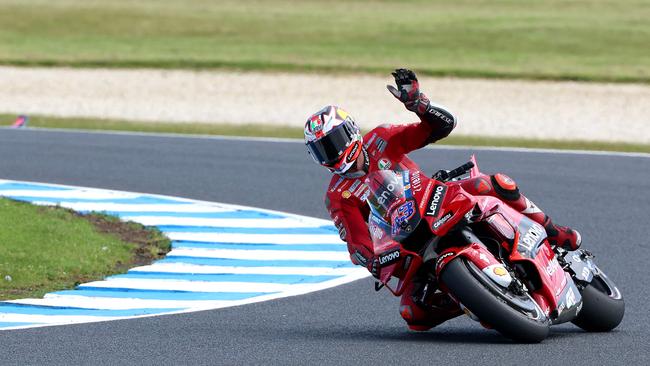
But it was also the scene of his most serious crash on his son’s 21st birthday in 2019. He careered into the gravel at 180km/h, fracturing one of his hands in 12 places.
“My son did not see the crash, he was behind me thankfully. When you crash in a motorbike on the track, your chances of survival are much higher. There are crashes all the time. But it is still very dangerous,” Pizarro says.
“There are still riders dying normally on the track, because there’s always something that can go wrong. At that speed anything can kill you. So I think I was lucky to get away with the injuries I got because it was a high-speed crash.”
But as soon as he was able to get back on his bike that year, he did – even if he could hardly get his racing glove onto his injured hand because of the pain.
Motorbike riding has helped Pizarro make up for lost time with Leonardo. He is still playing catch up with his eldest son, who is 26.
“I have never told Leonardo what to do, I just advise him. What is right and what is wrong. I hope I can do that with my younger ones as well,” he says.
“I talk a lot to my kids.”
His 12-year-old daughter Valerie has even been participating in training for staff at L’Oréal Melbourne head office. She comes into the office frequently, walking down St Kilda Road from her nearby school.
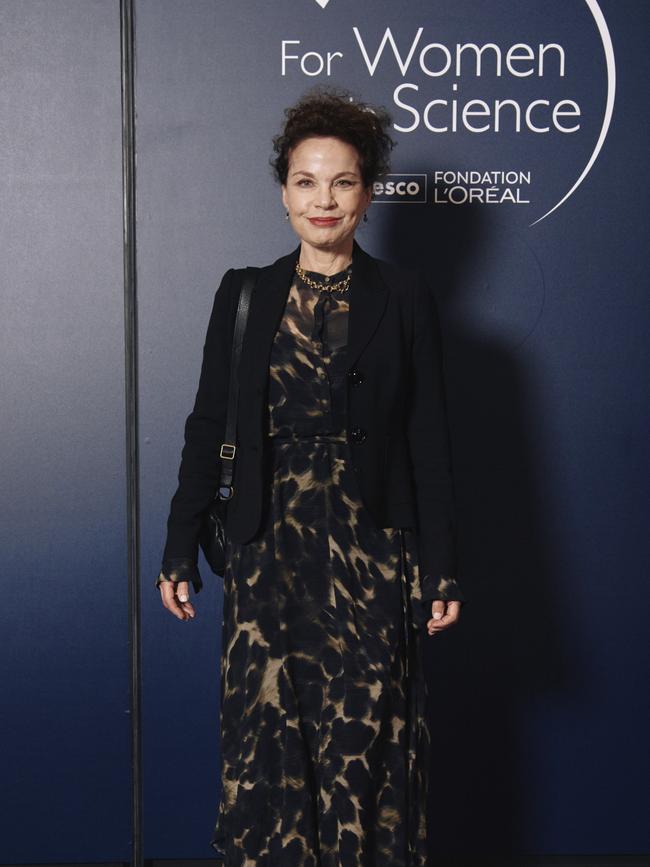
“We had training about the importance of learning. My training manager at the time had the idea – because she knew my daughter – and asked me, ‘Why don’t we have her talk?’,” Pizarro recalls.
“And so I interviewed her in front of 300 people about what was important for learning as a school student.”
Valerie also went with her father to two of the Women in Science events that L’Oreal sponsors in Melbourne. The program focuses on female empowerment and supporting female scientists at the forefront of their fields.
For many years, L’Oréal Australia has focused on gender equality as a key part of its Diversity and Inclusion program.
“Being the father of a young girl, I really care about making sure that my daughter will have a world where there is more equality than the one I found myself,” Pizarro says.
He now has care of his two youngest children at least five days each fortnight, including every Thursday when he leaves the office religiously at 3pm to take them to their various after-school activities.
“All those afternoons my meetings are in the car. I tell people who are on my meetings when my kids are in the car,” Pizarro says.
While he stresses he has no regrets about his first go at fatherhood, he is determined to do better second time around.
“I could not have known what I could not have known. But sometimes I get a bit sad when I think I could have done better. I see it in moments where I see what I do with the younger ones and how much I’m there for them,” he says.
“But this is what life is about. I really generally talk to everybody to say ‘Being a father or mother, the time with your kids is a primary job. So you have to take care of it’.”




To join the conversation, please log in. Don't have an account? Register
Join the conversation, you are commenting as Logout